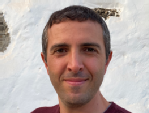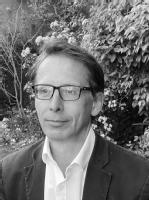Alumni Webinar: Building peace in modern conflicts

Are we standing at a critical juncture in human history? The first quarter of the 21st Century has been dominated by global crises from superpower conflict to climate change, resource scarcity and pandemics. Russia’s invasion of Ukraine has set in motion a sequence of events that threaten the long-held security order of Europe and the rest of the world.
In this webinar, Warwick’s panel of experts will explore and discuss the modern issues of peace and conflict and the key role universities offer as a space for creative and collaborative thought and research in tackling these globally significant issues. Our host and panellists will discuss the cause of modern wars and conflicts, the prospect of peacebuilding and how universities like Warwick need to contribute to the development of new models of peacebuilding and conflict resolution. We look forward to sharing with our audience how academics can navigate tense geo-political relationships to host constructive conversations and promote peaceful solutions.
A recording of this event will be made available shortly afterwards. All who have registered for the event will receive a link to the recording by email.
Host
Professor of Political Science, Department of Politics and International Studies (PAIS)
Vincenzo has held teaching and research appointments at the University of Essex, the University of Genoa, the University of Venice, IMT Lucca, and Sciences Po, Paris. His current research focuses on the arms trade, civil-military relations, international migration, terrorism, and military intervention in civil wars. He is currently working on a ESRC-funded project on the effect of terrorism on public attitudes and individual well-being in Great Britain. In his pre-academic life, he served as an officer in the Italian Navy, principally working in anti-submarine warfare.
Speakers
Reader of International Development, PAIS and Director of the Warwick Interdisciplinary Research Centre, International Development
Briony Jones’s research takes place at the intersection between International Development, Transitional Justice and Peacebuilding. Her work focuses on reconciliation, citizenship, political agency, the politics of intervention in societies undergoing a political transition and facing a past of massive human rights violations. She also has a strong research interest in the politics of knowledge production on and in such contexts.
Associate Professor in Political Science and Conflict Studies, PAIS and Coordinator, Network of European Peace Scientists
Arzu Kibris has held academic appointments at Duke University and Sabancı University, Istanbul. Arzu’s main research interests include the dynamics and social, political and economic consequences of civil conflicts as well as formal, experimental and empirical analyses of political and economic behaviour. Arzu is the principal investigator of the EXPOVIBE: Exposure to Political Violence and Individual Behaviour, exploring the individual level effects of being exposed to political violence in a civil conflict context.
Professor and Chair of War Studies, PAIS
Anthony has published widely on warfare and the armed forces. In 2019, he finished a trilogy on military transformation in the twenty-first century: The Transformation of Europe’s Armed Forces (Cambridge University Press, 2011), The Combat Soldier (Oxford University Press 2013) and Command (Cambridge University Press, 2019). His latest book, Urban Warfare in the Twenty-First Century, was published by Polity Press in July 2021. He currently holds a Leverhulme Major Research Fellowship and is researching into AI and urban warfare. He is planning to write a book on this topic in 2024. He has advised and mentored the British Army, Royal Marines and NATO for nearly two decades.




